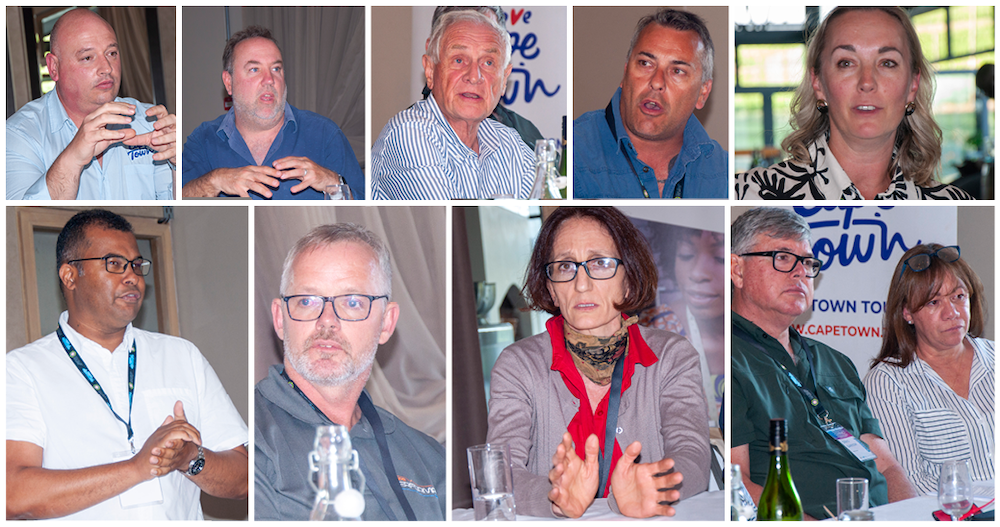Putting the blue economy on the table
City of Cape Town interacts with boating sector
SOUTH AFRICA: Stakeholders from the boating sector in Cape Town shared a table with representatives from the City of Cape Town yesterday to engage on issues impacting the continued growth of the Cape’s blue economy.
Discussions were led by Alderman James Vos and a team that included Enver Duminy from Cape Town Tourism and Lance Greyling from the Alderman’s Department of Economic Growth, with Bruce Tedder and Kathryn Frew from Blue Cape – a special purpose vehicle created to boost the sector in Cape Town.
Joining the table discussion to assist the city’s team make informed decisions around policy and strategies, were delegates from companies in the boat building sector, suppliers, outfitters, brokers, training providers and event organisers.
“Our intention with this roundtable is to help foster connections between the public and private sector, various businesses, and different industries, all with the ultimate intention of growing an economy that is inclusive and sustainable,” said Vos as he introduced his team.
“To put it plainly, the City of Cape Town wants you to succeed. We want you to do deals, to make money, to employ, and to take the ocean economy of Cape Town to its greatest heights. It’s important to me that we look at the wider context of the ocean economy and the various other industries it connects to as well as the numerous concerns it touches on,” he said noting the need to address issues within the port, skills shortages and the energy crisis.
Delegates opened up in the casual atmosphere and highlighted a number of critical challenges that need to be addressed with some urgency. These included:
Access to water – boat builders continue to struggle to launch boats timeously facing restrictions both within the V&A Waterfront as well as within the Port of Cape Town. In addition, abnormal transport and the application for permits allowing the use of roadways to the port is fraught with red tape and delays.
Critical skills – the need to develop relevant training for artisans has long been an issue for the sector. Some training academies are not providing the necessary training for entry into the boat building sector and scarce skills are poached once developed.
Visa challenges – the lack of longer term visas for visiting yachts reduces the time spent along the South African coast and consequently impacts on money spent both within the sector as well as in general.
VAT refunds – closely linked to the visa issue, is that of the bureaucracy related to successfully claiming VAT refunds for those leaving the country. According to delegates, this is being played out across social media platforms and negatively impacting on the reputation of South Africa as a yachting destination.
Port congestion and inefficiencies – inefficient ports and the resultant delays or diversions of both imported and exported cargo inflates the costs of doing business and has a reputational impact on the industry. Boat builders rely heavily on imports and risk not meeting building deadlines when inventory is delayed. Similarly, companies that export their products are impacted when they cannot load their orders for Just In Time deliveries.

But discussions did not only revolve around complaints. It was clear that those sitting around the table are passionate about building not only their own brands, but working collectively to promote South Africa and Cape Town as a boating destination with world class products and services on offer.
Wrapping up the discussion Alderman Vos assured those present that the evening was not simply a talk shop. “We are going to make a strong case for addressing these concerns,” he said, adding that the City of Cape Town needed to be able to have more control over some of the issues impacting the sector.
Enver Duminy agreed, adding that there was a definite need to take national government to order and to work in closer collaboration.
For Vos, the mission is clear cut: Cape Town needs to be the easiest place to do business and the local government needs to help the private sector create jobs.
The discussions were held on Nitida Wine Farm along the Durbanville Hills Wine Route where farm owner, Bernhard Veller welcomed guests and shared his own passion for boutique winemaking.
612